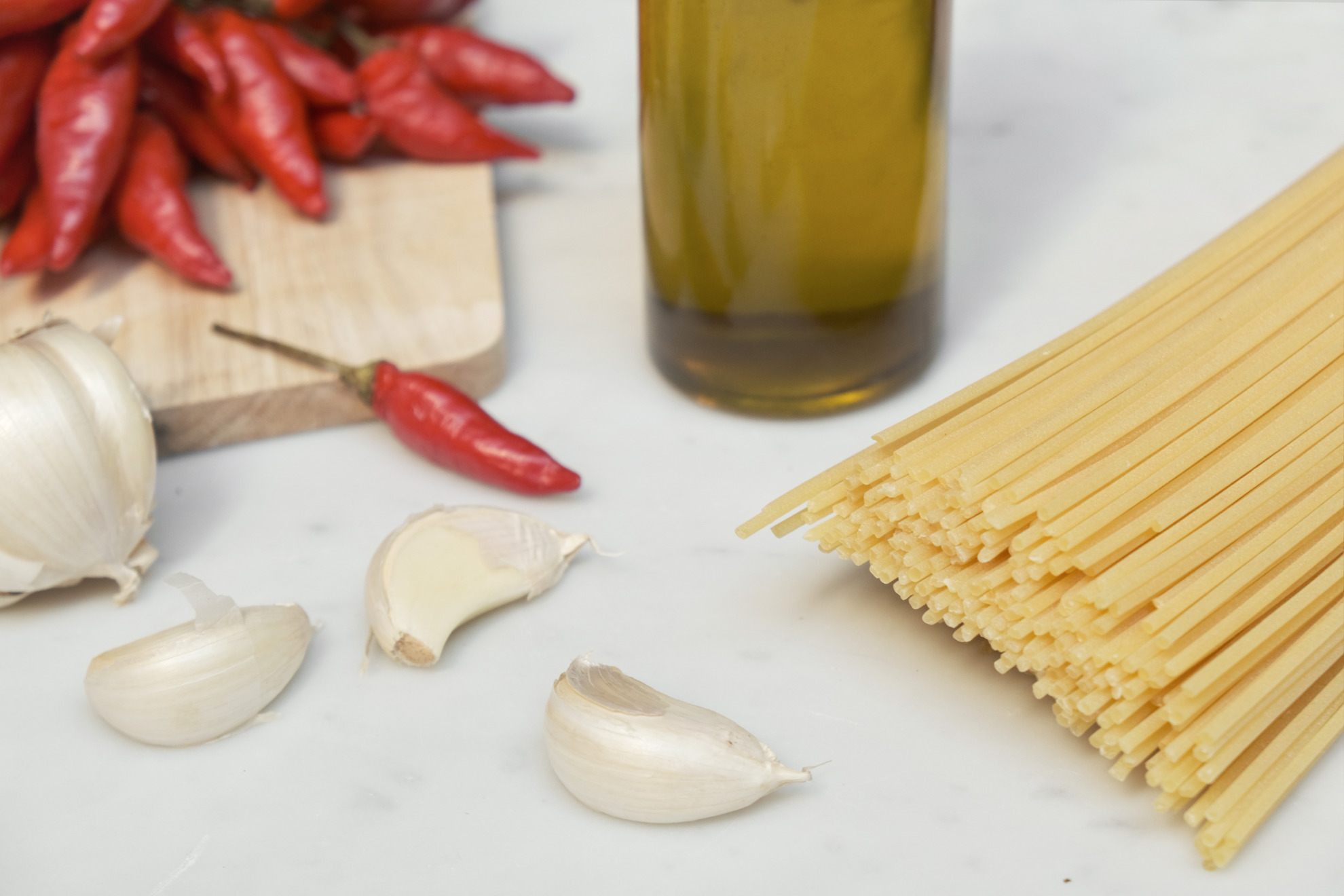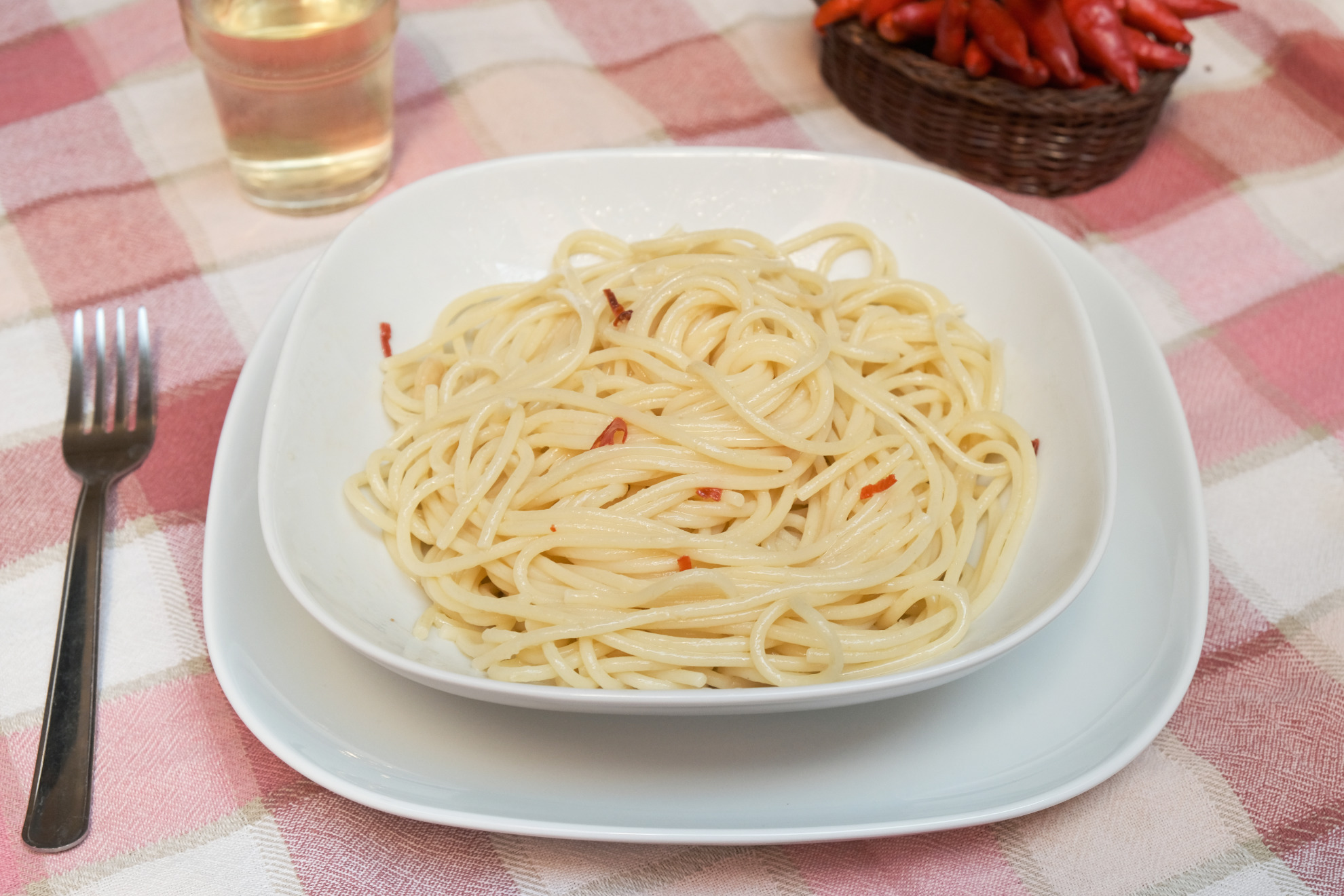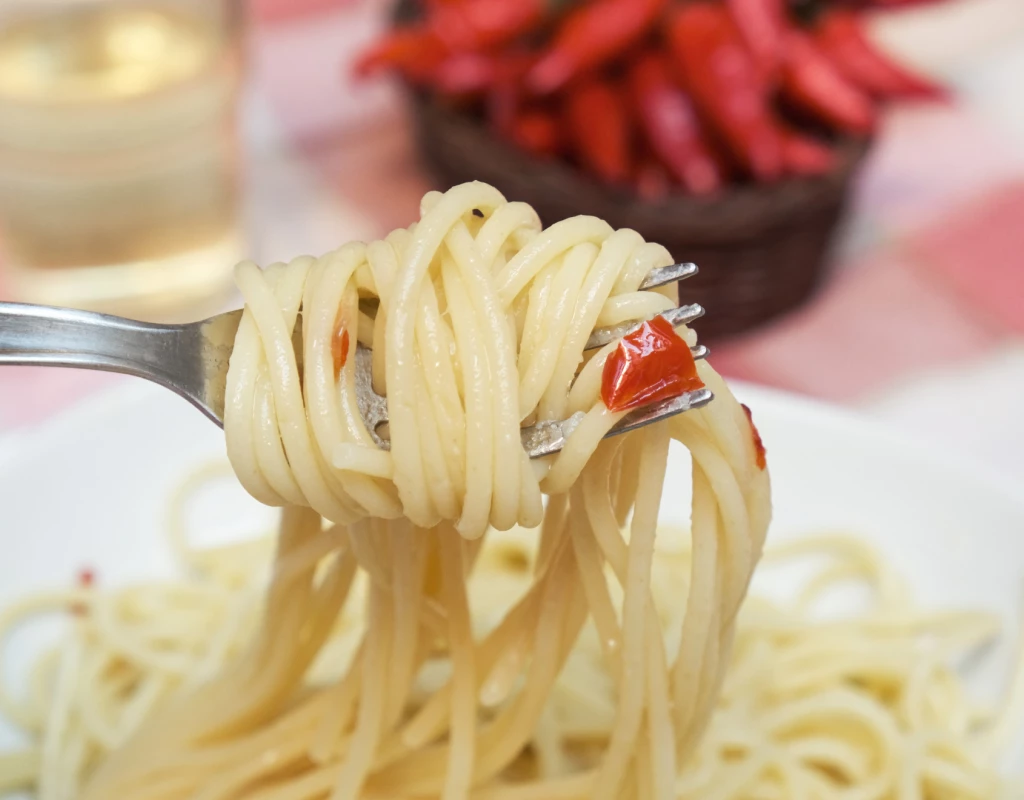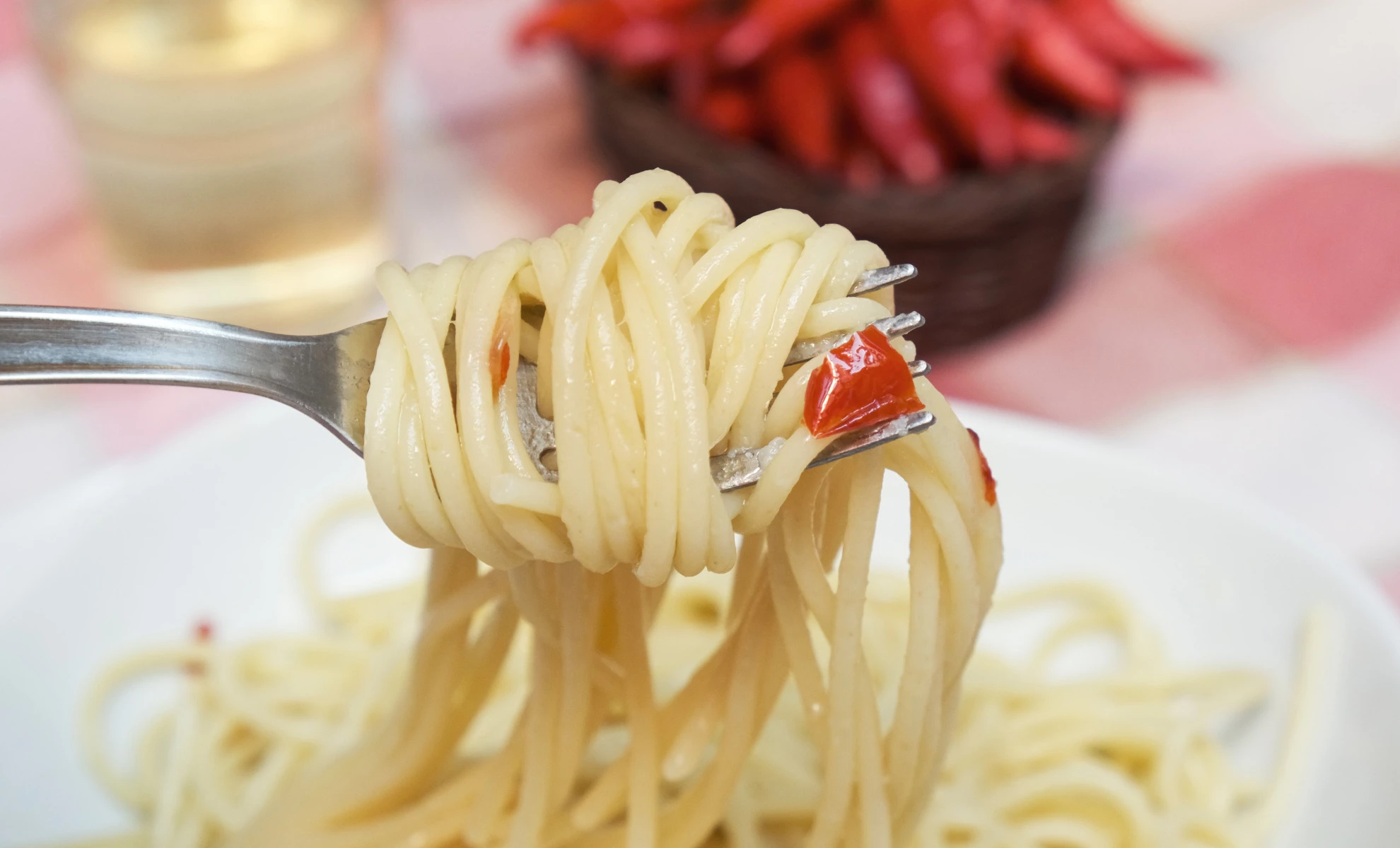No dish like spaghetti with garlic, oil and chili pepper defines the concept of "humble cuisine" better. Born in houses where it was hard to prepare lunch and dinner, pasta with garlic and oil (as it is popularly defined) became popular in Naples and Campania thanks to the olive oil which was the main condiment in the regions of Southern Italy.
In Northern Italy, butter was mainly used. In the sunny territories of the South, on the contrary, the olive tree has always been one of the predominant plantations. Therefore the idea was born of dressing spaghetti with oil, garlic, chili pepper - to give spiciness and structure - and finally with fresh parsley. At the base of the recipe: extra virgin olive oil, the undisputed king of the Mediterranean diet.
The ingredients | Ph. Carolina Fragapane

The gastronomic culture of the whole Italy, and in particular of the South, is based on peasant and rural recipes. Few ingredients, richness of flavors, reuse of what was prepared in the previous days because - as the old saying goes - nothing is thrown away. Those who fought with hunger and daily economic difficulties were well aware of the value of food: not only from the point of view of taste, but from that of the sustenance of families.
Therefore, garlic and oil have an even more important meaning than what the simplicity of the dish hinted at. A cuisine that reused the ingredients left over from previous days, without many frills but rich in flavors, which balances the sweet and greasy tendency of the oil, the spiciness of the chili, the aromas of garlic and the flavor of parsley.
Ph. Carolina Fragapane

In this dish is all the Mediterranean typicality: parsley, which evokes the flavors and aromas of much more elaborate dishes, such as those based on fish; extra virgin olive oil, which defines the identity of the South better than any other product; garlic, the basic element of any good condiment; chili, which from the South reached everywhere.
A dish that is called by the name of its ingredients. A philosophy of life: the emblem of how good things, many times, rhymes with simplicity.

